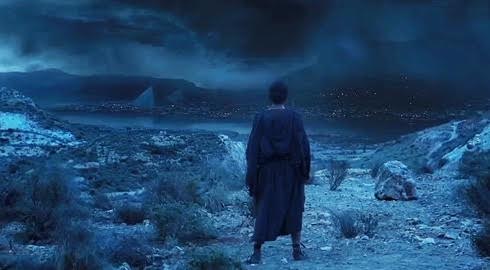Fire and Ice – Parasha Va’eira
“….And there was hail, and fire flaming within the hail….” – Shemot 9:24
וַיְהִי בָרָד וְאֵשׁ מִתְלַקַּחַת בְּתוֹךְ הַבָּרָד – שמות ט, כד
In the seventh of the Ten Plagues that G-d brought upon the Egyptians, a devastating hail rained down upon Egypt, striking all people and livestock that were not indoors and crushing all of Egypt’s remaining crops and trees. In addition, the Torah tells us that there were flames of fire within the balls of hail. What was the meaning of this unusual plague and the purpose of the additional fire within it?
G-d brought the Plague of Hail upon the Egyptians to crush not only their crops, but their delusional arrogance and self-assuredness as well. As Egypt is irrigated by the rising of the Nile and not by rain of the heavens, the Egyptians believed that they were entirely self-sufficient and not at G-d’s mercy for their survival. The prophet describes this conceited sense of independence, calling Pharaoh “the great crocodile that lies down in the midst of its rivers, who said, ‘my river is my own, and I made myself’ (Yechezkel 29:3).” As the commentaries explain, Pharaoh felt that “I do not need the heavens, for my river provides all my necessities (Rashi).”

G-d struck down the Egyptian’s haughty sense of independence by raining a supernatural mix of ice and fire upon them from the heavens. The ice mirrored the nature of the conceited to be extremely cold – aloof and indifferent to others. Haughtiness can also express itself in heated passion – that is, toward one’s own selfish interests. In fact, the icy coldness toward others is due to the narcissist’s obsessive adoration of himself or herself. This self-obsession was reflected in the fire within the ice in the plague of hail.
With the plague of hail, which literally and figuratively crushed the egotistic self-reliance that Egypt stood for, G-d made his point very clear. Indeed, after this plague Pharaoh finally acknowledged, “G-d is righteous; I and my nation are guilty (9:27).”
—Reshimos #27


Follow Us!